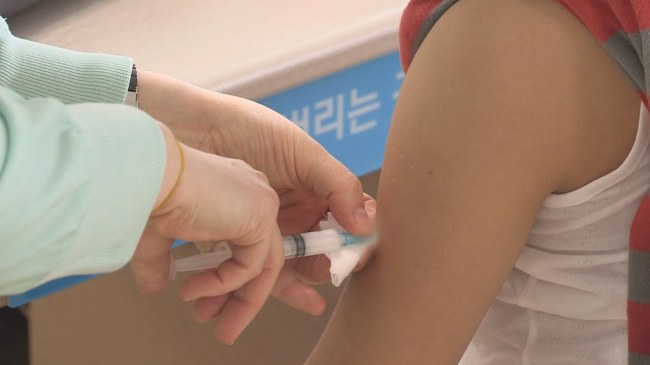Korea reports 129 confirmed measles cases this year
By Kim So-hyunPublished : April 10, 2019 - 13:27
The total number of confirmed cases of measles reached 129 in Korea as of Tuesday amid major outbreaks in other parts of the world, health authorities said Wednesday.
But the situation does not raise concerns about a nationwide epidemic, the Korea Center for Disease Control and Prevention said.
But the situation does not raise concerns about a nationwide epidemic, the Korea Center for Disease Control and Prevention said.

“Korea has a high vaccination rate for measles. It can hit groups of people as it has in Anyang and Daejeon, but we can keep it under control by managing people who have been in contact with the patients,” the KCDC said.
Measles has stopped spreading in Daegu and Ansan, where the first outbreaks occurred, striking 16 and 22 people, respectively.
More outbreaks have occured, however, in Seogu of Incheon, Gyeongsan of North Gyeongsang Province, Seoul and Daejeon.
Recently, more than 20 measles cases were confirmed at a university hospital in Anyang, Gyeonggi Province,
Individual infections, mostly contracted overseas, are on the rise as well.
The individuals confirmed to have measles visited Vietnam (16 people), the Philippines (10), Ukraine (2), Thailand (2) and six other countries with one case each.
Korea had been listed by the World Health Organization as having eradicated measles in 2014, which means that no one was infected with a homegrown strain. Less than 20 cases have been reported each year since.
In 2014, however, 442 people were struck with measles. In 2010, some 111 people came down with measles in Incheon, and in 2011, 42 in the South Gyeongsang region.
The KCDC attributed the increasing number of measles cases to major outbreaks in European countries such as France and in Southeast Asia.
Measles is an airborne virus that is easily spread through coughing and sneezing. It causes fever, runny nose, cough, red eyes and sore throat, followed by a rash. An infected person will start being contagious four days before a rash appears and will stop being contagious four days after rash onset.
By Kim So-hyun (sophie@heraldcorp.com)








![[Graphic News] More Koreans say they plan long-distance trips this year](http://res.heraldm.com/phpwas/restmb_idxmake.php?idx=644&simg=/content/image/2024/04/17/20240417050828_0.gif&u=)
![[KH Explains] Hyundai's full hybrid edge to pay off amid slow transition to pure EVs](http://res.heraldm.com/phpwas/restmb_idxmake.php?idx=644&simg=/content/image/2024/04/18/20240418050645_0.jpg&u=20240419100350)








![[KH Explains] Hyundai's full hybrid edge to pay off amid slow transition to pure EVs](http://res.heraldm.com/phpwas/restmb_idxmake.php?idx=652&simg=/content/image/2024/04/18/20240418050645_0.jpg&u=20240419100350)

![[Today’s K-pop] Illit drops debut single remix](http://res.heraldm.com/phpwas/restmb_idxmake.php?idx=642&simg=/content/image/2024/04/19/20240419050612_0.jpg&u=)